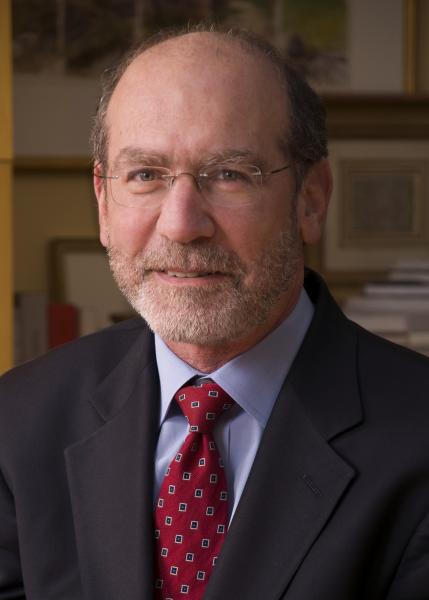- Categories:
Face Out: ABA Board Member Bradley Graham on His Life Among Books
In the latest installment of our series profiling American Booksellers Association Board members, Bookselling This Week talks to Bradley Graham, co-owner of Politics and Prose in Washington, D.C. In May, Graham was appointed to the ABA Board to fill a vacancy resulting from the election of Robert Sindelar of Third Place Books as ABA President.
 Bookselling This Week: Please talk about your early experiences with reading and books.
Bookselling This Week: Please talk about your early experiences with reading and books.
Bradley Graham: Books helped propel me into my first career — journalism. I came of age reading the works of Tom Wolfe, Truman Capote, Norman Mailer, George Plimpton, Gay Talese, and Hunter Thompson. They were the purveyors of the “New Journalism,” eschewing the standard model of dispassionate, even-handed coverage and instead incorporating literary devices more common to fictional works. Their creative narrative methods broke all the rules — and drew me in. I became a reporter and stayed in journalism for more than 30 years. Somehow, it seems fitting that after leaving journalism, I entered the book business and can now help others find works that might inspire them.
BTW: Did you hold other positions in the book industry before becoming a bookseller?
BG: No, I was a neophyte to the business, at least to the retail end. I had written two books but had never worked in a bookstore. Still, as a veteran journalist trained in the art of quick study, I figured, “How hard could running a bookstore be?” After six years at Politics and Prose, I now can attest, “Harder than it looks!”
BTW: How did you begin as a bookseller, and how long after starting in bookselling did you begin to feel that you had found a special vocation?
BG: I got into bookselling as a co-owner of P&P, joining with my wife, Lissa Muscatine, to buy the store in 2011. From the start, I recognized that a bookstore serves a larger purpose than simply selling books. What lifts it above ordinary retail is its role as a community center, a forum for discussion, and a cathedral of ideas. Keeping a bookstore going carries a deep sense of responsibility, but, as I quickly came to appreciate, it also can be especially gratifying as a form of service to community.
BTW: What do you think was the most important factor that led to you buying your store?
BG: Conversations with others in the business. While mulling whether to make the purchase, I sought the views of a number of bookstore owners and managers. They talked about the challenges of running an indie and speculated about the future of the book trade, but above all, they sounded deeply committed to bookselling, leaving a strong impression that there was nothing else they’d rather be doing. The opportunity was hard to resist.
BTW: When did you first become a member of ABA? What motivated you to join?
BG: P&P was already an ABA member when Lissa and I assumed ownership of the store. But we ourselves quickly came to realize ABA’s importance in providing supportive services and promoting bookstore interests with publishers, government authorities, and the general public. So we haven’t hesitated renewing our membership year after year.
BTW: What do you think are some of the most important changes in bookselling since you bought your store?
BG: The six years that I’ve been in bookselling have seen a dramatic shift in mood and outlook among indies. Back in 2011, much doom and gloom hung over the business amid widespread predictions that e-books would soon supplant physical books. Nowadays, the news media are filled with stories about an indie revival, and while some of this also is overdone, there is certainly justifiable renewed confidence in the survival of bricks-and-mortar bookstores. Why the shift? A combination of factors account for it, but perhaps most significant has been a deepened commitment by customers to shop local and support their neighborhood bookstores.
BTW: As an ABA Board member, what are your key goals for fostering the book industry, and bookselling in particular?
BG: First, to do more to help indies widen exceedingly narrow profit margins, whether by improving terms through ongoing discussions with individual publishers, developing new sources of financing, exploring cost-cutting options, sharing best practices among stores, or other measures. Second, further improve IndieCommerce and better educate stores about how to use online services. Third, promote diversity throughout the bookstore business. And fourth, encourage all of us in ABA to more intensively scan and discuss future trends in the book industry.
BTW: What are you reading now?
BG: Two recent releases on military subjects: Hue 1968 by Mark Bowden and The Prisoner in His Palace by Will Bardenwerper. Plus Friends Divided, a dual biography due this fall by historian Gordon Wood about the entwined lives of John Adams and Thomas Jefferson.
BTW: You get a day to walk through any city, town, or landscape with any one writer. What writer and what place?
BG: A day trip to a Greek island with Homer. He can pick the island.

